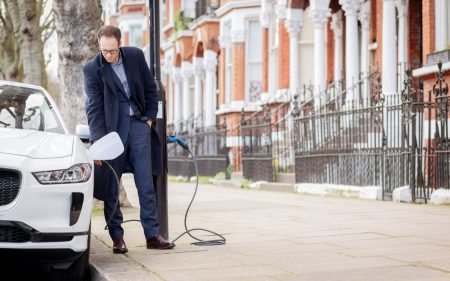2030 is a little more than 9 years away, but news of the UK’s plan to ban sales of new gas/diesel cars in 2030 has reportedly led to a surge in interest in electric vehicles (EVs).
Practically speaking, there’s one decent reason for that, but the core reason is probably just increased awareness that electric vehicles are becoming mainstream and will eventually take over the market — something that is extremely old news to CleanTechnica readers but still largely unknown to the broader public. Helping the public to learn that the future (the medium-term future even) is electric leads to many more people thinking about their existence and viability right now.
Among other things, this just shows the power of strong country targets.
According to BuyaCar.co.uk, electric vehicle inquiries increased by 500% following the news of the stronger timeline. The website, which has more than 60,000 cars available for sale, saw searches for electric cars rise from about 300 a day to “1,679 in the 24 hours following Boris Johnson’s announcement.” They represented 6.5% of vehicle searches in the previous 30 days, and then 10.3% in the day following the announcement from UK Prime Minister Boris Johnson.
UK plugin vehicle sales rose above 12% in October (6.6% fully electric/BEV share), and was above 9% in the first 10 months of 2020 (5.5% BEV share). If a five-fold increase in EV interest translated to a five-fold increase in plugin vehicle sales, we’d see rocket grow to around 50% of the UK’s auto market! Of course, a search surge in 24 hours after a major national announcement does not mean sales will follow the same surge in interest. However, it’s a good sign — growth in consumer exploration of the superior technology should lead to an increase in sales.

Also noteworthy, being a used vehicle site, BuyaCar.co.uk does not see the interest in electric vehicles that the new car market sees. The company shares that not even 1% of its 2020 sales of used cars were full electrics.
Naturally, electric vehicles benefit from instant torque, a completely smooth & quiet powertrain, zero emissions, a simple powertrain that results in very low cost operation and much less maintenance, and the glamor of new tech.
One of the biggest advantages of a good electric car is that it holds its value well — something demonstrated over and over again, especially when it comes to Tesla models. As noted at the top, there is also a practical reason for a surge in interest following the 2030 ban announcement — gas and diesel cars could really see high depreciation as we get closer to 2030. If someone wanted to avoid being stuck with a used fossil fuel vehicle that had depreciated a great deal, resulting in a high total cost of ownership, it seems that it would be smart to go electric sooner rather than later.
BuyaCar.co.uk focused on the fact that the vast majority of buyers are still buying diesel and petrol cars, especially on the used market. While the crew there may think it’s for logical reasons, I would argue that it’s mostly due to cultural inertia, psychological inertia, and limited availability. All of those barriers can be overcome rather swiftly, especially considering the pace of change in the new-car market. The good news is that people seem to have an increasingly open mind about the new powertrain (which isn’t actually new, but that’s a story for another day). Even the BuyaCar.co.uk team seemed open minded about the transition, despite being probably less optimistic about the growth potential than you or I am.
Read more: Clean Technica
It’s Time to Go Green!
If you would like to know more about Solar Panels and the PowerBanx range of home battery systems, and get a free instant quote, please complete our online form:

